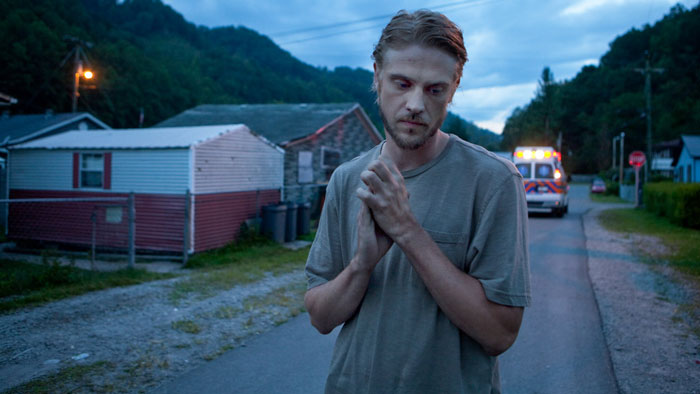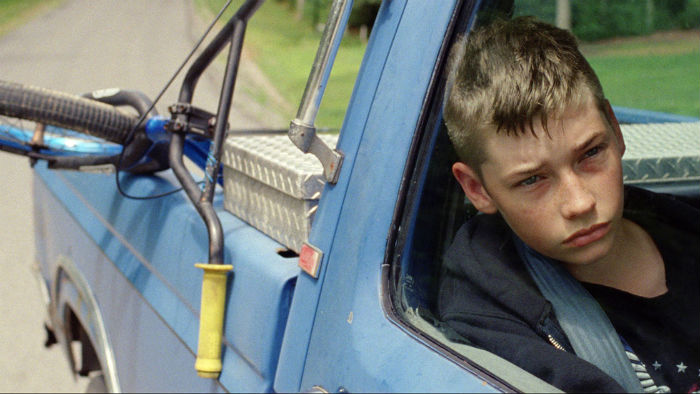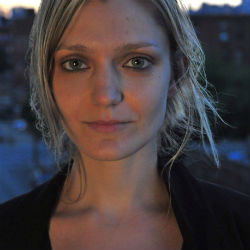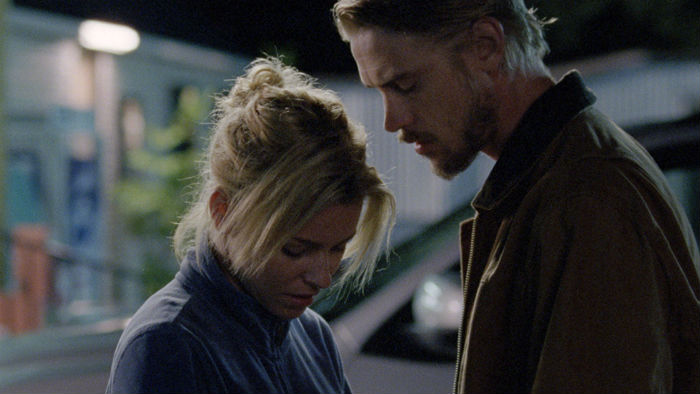A haunting portrait of unintended consequences, Little Accidents follows a small town in the wake of a mining disaster that leaves ten dead and the delicate social fabric of a community in tatters. Its disparate residents become bound to one another through shared grief and a series of shocking revelations: Diana, the chief executive’s wife with a missing son; Amos, the lone survivor of the tragedy; and Owen, a local boy left fatherless. A stunning work by first-time feature filmmaker Sara Colangelo, it features a stellar cast, including Elizabeth Banks, Boyd Holbrook, and Chloë Sevigny.
Colangelo’s Little Accidents was a project in the 2013 HIFF Screenwriters’ Lab.
Please describe Little Accidents in your own words.
Sara Colangelo: Little Accidents is a portrait of a small, modern-day Appalachian town in tatters after a terrible coal mining accident has taken place. The film weaves together the stories of three characters: Owen Briggs, a teenage boy who has lost his father in the accident; Amos Jenkins, a young miner who is the sole survivor of the accident; and Diana Doyle, a middle-class housewife whose husband, a coal executive, is criminally implicated in the tragedy.
What inspired you to tell this particular story?
SC: I wanted to look at how a traumatic event—particularly one set a few months in the past—would reverberate onto an entire community and on a specific cast of characters. I was interested in the creative challenge of never showing the accident onscreen, but instead experiencing its horrors and its effects through people who were desperately trying to cope and move forward in its aftermath. I also wanted to explore the idea of setting a drama within a one-company town. I wanted to look at how trauma could cut across lines of class and age and gender, and in certain cases, connect victim and perpetrator. The coalfields of Appalachia seemed like a perfect backdrop for the story, and I was intrigued by the fact that this world and this industry were fairly unexplored in American cinema.
You’ve assembled a very interesting cast, including Boyd Holbrook, who seems poised to break out very soon. What was the biggest surprise of the casting process for you?
SC: Well, as a first-time feature filmmaker, I was incredibly lucky to have assembled and worked with such an amazing cast. So I’ll just say that I was surprised and sort of pinching myself throughout the entire casting process. But, in a certain sense, Boyd was the biggest surprise in that he seemingly came out of nowhere, fit the role so perfectly, and had a very personal connection to the material. I met him by way of Eve Battaglia, who was my casting director for the Sundance Directing Labs in 2011. She was like, “This kid’s going be a star.”

When I finally had coffee with him and learned that he was born and raised in the coalfields of Kentucky, son of a coal miner, it was a no-brainer. The story resonated with him in a visceral, real-life way; he had an inherent knowledge of this world that could give the character of Amos that much more dimension. Meeting and working with him at the Labs ended up being a godsend because we were essentially able to start fleshing out the character almost a year before shooting.
We did a lot of dorky prep work—like creating a GoogleDoc that we’d pass back and forth that carved out Amos’ psychological arc and backstory: what was this guy like before versus after the accident? Was he a womanizer? Was he a wild kid, a jokester in high school? We also discussed the physiological arc of his character (he goes through extensive rehabilitation over the course of the story): how he would move, how his speech patterns and word usage might improve, how he might gain fluidity in social situations and in connecting emotionally with other people. Boyd, being the incredibly committed actor that he is, also went to veterans’ hospitals and rehab facilities to observe and talk to folks who lived through similar accidents and suffered similar injuries.
You were a part of the HIFF Screenwriters’ Lab in 2013. How did that affect your writing process? How did the script evolve over time?
SC: Well, I was in the strange position of going to the Lab only two months prior to shooting. So I was in panic mode, and I knew I had to cut numerous scenes from the script to get ready for production. I worked with Lisa Muskat and Oren Moverman, who were both incredibly insightful and supportive advisors. I went to them and said, “Look, I have to get this script from 120 to 100 pages by Monday morning. What should come out?” They went through it scene by scene and really helped me zero in on what the essential elements of the script were. They also just calmed my first-time-director nerves and reminded me to have fun on set. I remember Oren saying “Look, it’s just a script, it’s a blueprint that you can and should veer from on set.” I think that was great advice.

What do you want audiences to take away from your film?
SC: I’m not sure that there’s a particular message I ever try to impose onto the audience—I try not to be too didactic. I suppose your biggest hope as a filmmaker is that you stir something up and pose new questions. I would say, though, that I was interested in showing audiences a sliver of coal country—a place I think Americans know very little about and sometimes lack appreciation for. The Appalachian coalfields are a beautiful and heartbreaking place in the throes of change and at the center of a huge national energy debate. I wanted to put a face on this group of people—a group that is often marginalized and misrepresented.
On a broader level, I wanted the film to spur audiences to reflect on the very nature of storytelling. The characters of the film struggle with what the “truth” of the accident is—what the real story is—who is to blame—why did it happen, etc. In this regard, I hope the film explores how we create the narratives of our own lives and how we chose to tell and re-tell stories about the past to ourselves. I wanted to dissect how each character tells the story of the accident to themselves. If they don’t have all the information, how do they fill in the blanks? And if they do have all the information, how do they manipulate or arrange the facts so that it’s something they can live with?
Do you have one piece of advice for aspiring filmmakers?
SC: I would say two things: to write and direct something that is close to your heart. To not be afraid of it or push it away. I think you have to have something you want to express (however overtly or covertly, dramatically or comically) that is from a dark and deep place in your emotional life.
Secondly, I’d say just make the damn film. There are so many obstacles—the primary being financial—that can slow you down or trip you up, but make the film even if your budget is slashed and you don’t get the movie star you wanted. It feels reckless… almost like you’re jumping off a cliff, but embrace the unknown and go for it.
What are you most looking forward to at the 2014 Hamptons International Film Festival?
SC: There are so many films that have been on the festival circuit in the past few months that I haven’t been able to see and I am eager to check out. But besides watching movies and hanging out with fellow filmmakers, it’s always fun to drive out to the cranberry bogs in Montauk on a foggy morning and get breakfast at Anthony’s Pancake House.
Little Accidents will have its New York premiere in the Golden Starfish narrative competition at HIFF 2014. The film will be released by Amplify in early 2015; follow Little Accidents on Facebook.
 Sara Colangelo is a Student Academy Award-nominated director and recent graduate of New York University’s Kanbar Institute of Film & Television. Her documentary film, Halal Vivero, traveled to numerous film festivals and was a National Finalist at the 2006 Student Academy Awards. Her second film, A Moment to Breathe, has screened at over 15 international film festivals. Her most recent film, Little Accidents, premiered at the Sundance Film Festival. Colangelo is currently working on a feature-length documentary, Bill, and was named one of Filmmaker Magazine‘s 25 New Faces of Independent Film in July 2010.
Sara Colangelo is a Student Academy Award-nominated director and recent graduate of New York University’s Kanbar Institute of Film & Television. Her documentary film, Halal Vivero, traveled to numerous film festivals and was a National Finalist at the 2006 Student Academy Awards. Her second film, A Moment to Breathe, has screened at over 15 international film festivals. Her most recent film, Little Accidents, premiered at the Sundance Film Festival. Colangelo is currently working on a feature-length documentary, Bill, and was named one of Filmmaker Magazine‘s 25 New Faces of Independent Film in July 2010.






